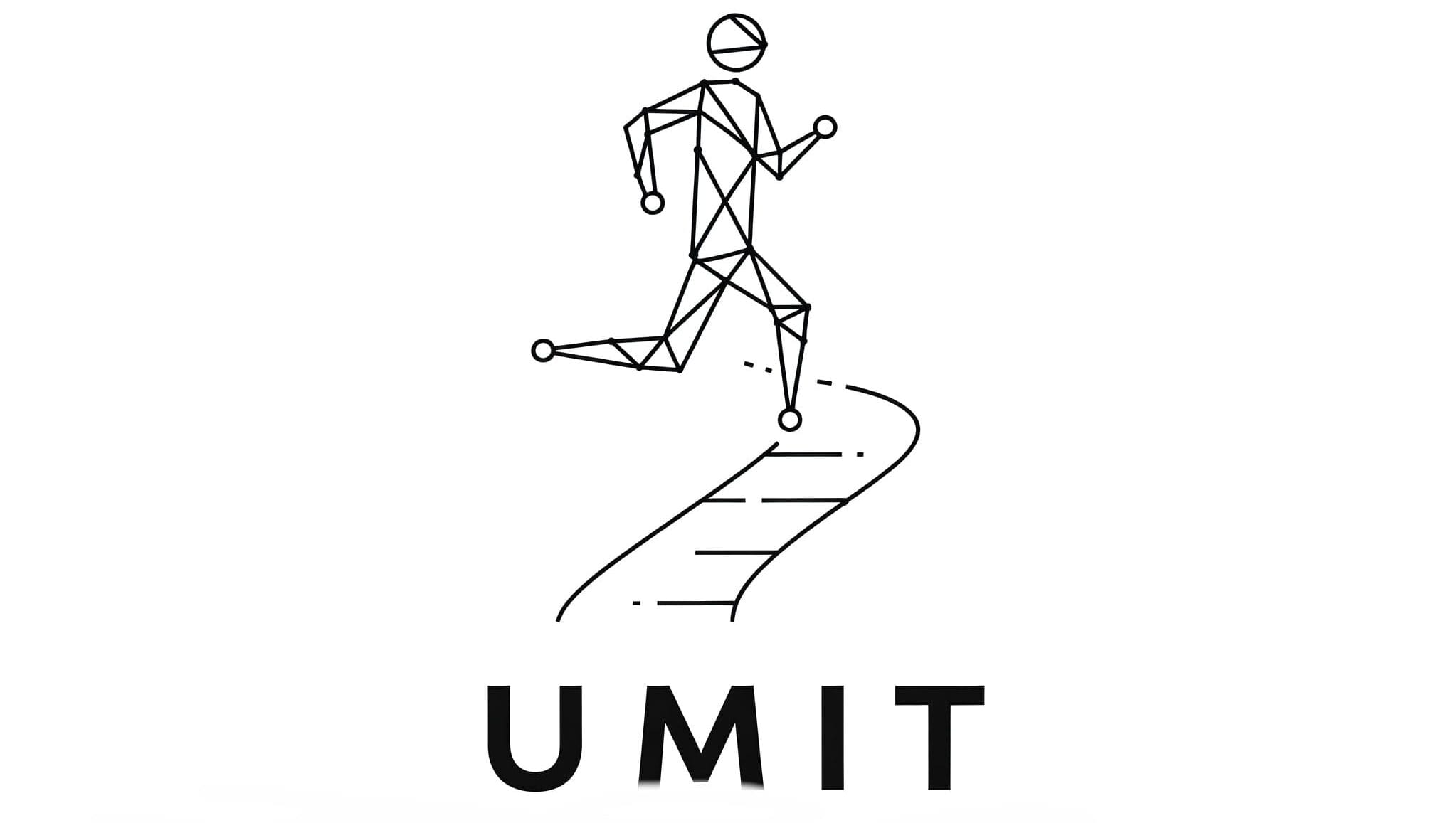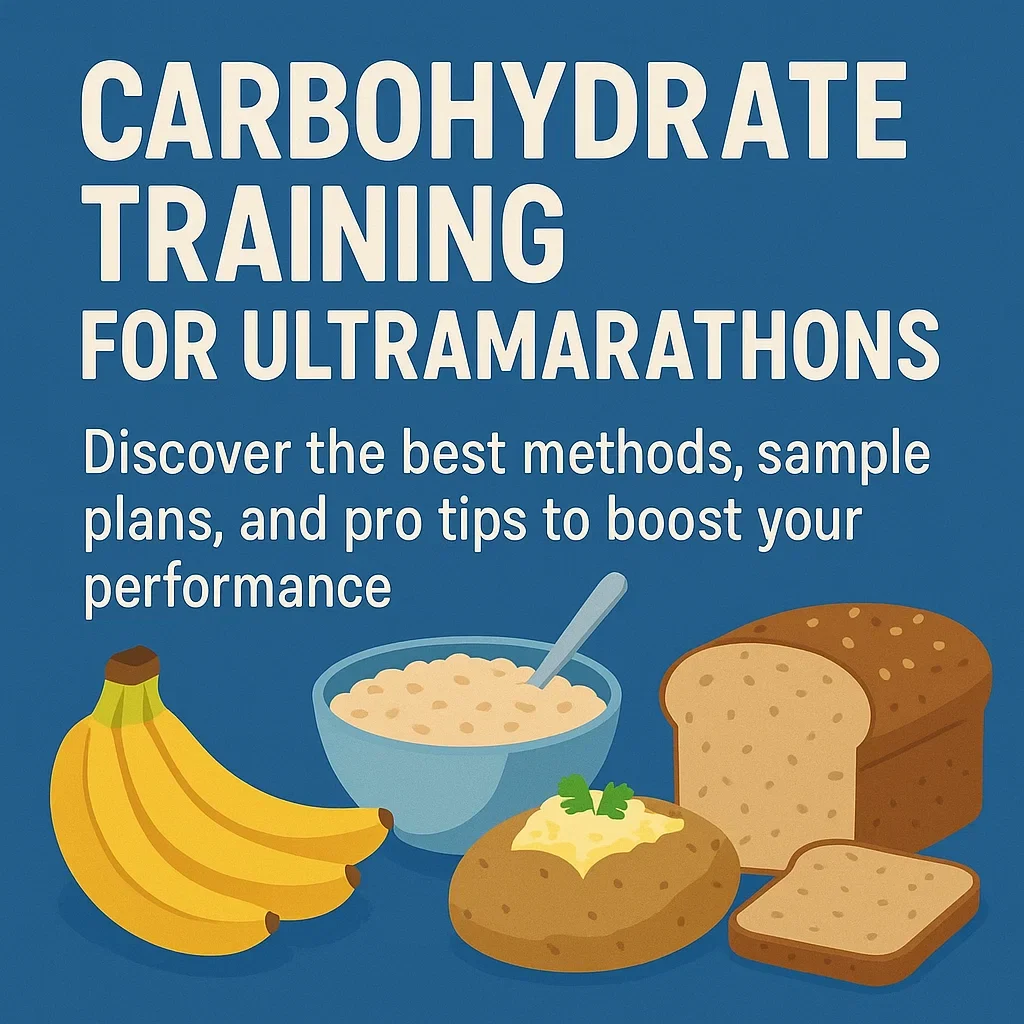🚀 Carbohydrate Training: How to Practice for Maximum Efficiency
🌟 Introduction: Why Carbohydrate Training Matters for Ultramarathons
Carbohydrates are the body’s primary fuel source during intense exercise, and for ultramarathon runners, mastering carbohydrate training can be the key to unlocking consistent energy, improved performance, and faster recovery. But carbohydrate training is more than just eating more pasta the night before a race. It’s about strategically using carbs to enhance your body’s ability to store, access, and efficiently use glycogen—the stored form of carbohydrates in your muscles and liver.
In this guide, we will explore the science of carbohydrate utilization, the best methods for carbohydrate training, and practical plans to help you maximize your performance as an ultramarathon runner.
🚀 Why Carbohydrates Are Essential for Ultramarathon Performance
Carbohydrates are the body’s preferred energy source, especially during high-intensity activities like running. When consumed, they are broken down into glucose, which is then stored in the muscles and liver as glycogen. During your run, this glycogen is converted back into glucose to fuel your muscles.
✅ Key Benefits of Carbohydrates for Ultramarathon Runners:
- ⚡ Rapid Energy: Carbohydrates provide quick energy for intense efforts.
- 🔋 Glycogen Storage: Carb loading can increase your muscle glycogen stores, extending your endurance.
- 🚀 Improved Recovery: Consuming carbs after training replenishes glycogen stores faster.
- ✅ Mental Focus: Carbohydrates also fuel your brain, keeping you mentally sharp.
But to get the most out of your carbohydrate intake, you need a training strategy that helps your body efficiently use this energy source.
🚀 Understanding Carbohydrate Utilization
To optimize your carbohydrate training, it is essential to understand how your body uses and stores carbohydrates:
✅ The Glycogen System
- Carbohydrates are converted into glucose and stored as glycogen in your muscles and liver.
- Muscle glycogen is the primary source of fuel for intense, high-speed running.
- Liver glycogen helps maintain stable blood sugar levels, providing consistent energy.
✅ Glycemic Index (GI) and Carb Types
- High-GI Carbohydrates: Provide rapid energy but may cause blood sugar spikes (e.g., sports drinks, energy gels, white bread).
- Low-GI Carbohydrates: Provide steady energy and are better for long-duration events (e.g., sweet potatoes, whole grains, fruits).
✅ Carbohydrate Oxidation Rate
- Most runners can absorb 30–60 grams of carbohydrates per hour during a race.
- Advanced runners may train their bodies to utilize up to 90 grams per hour with a combination of glucose and fructose.
🚀 Carbohydrate Training Methods
There are several methods for training your body to efficiently use carbohydrates, each with its own benefits:
✅ 1. Fasted Training
- Train in a fasted state (no carbs before your run) to encourage fat adaptation.
- This method helps your body become more efficient at using fat for energy while preserving glycogen.
✅ 2. Carb-Loaded Training
- Increase your carbohydrate intake 24–48 hours before a training run.
- Use high-GI carbs (white rice, sports drinks, energy gels) for rapid energy.
- Ideal for testing your race day fueling strategy.
✅ 3. Glycogen Depletion Runs
- Perform a long run after a low-carb meal or fasted state.
- This forces your body to use its stored glycogen efficiently, improving metabolic flexibility.
✅ 4. Intermittent Carbohydrate Intake
- Practice using small, frequent doses of carbs during long runs (gels, sports drinks, fruit).
- This trains your digestive system to tolerate carbs while running.
🚀 Sample Carbohydrate Training Plans for Ultramarathon Runners
✅ 1-Week Carbohydrate Training Program
| Day | Type of Training | Carb Intake Example |
|---|---|---|
| Day 1 | Fasted Run (10K) | Water or black coffee only |
| Day 2 | Carb-Loaded Interval Run | 60g carbs before, gels during |
| Day 3 | Easy Recovery Run | Low-carb, fat-based breakfast |
| Day 4 | Glycogen Depletion Run | Fasted run (15K) |
| Day 5 | High-Carb Long Run (20K) | Carb loading (60g/hour, gels, sports drinks) |
| Day 6 | Rest Day | Balanced meals (low to moderate carbs) |
| Day 7 | Short, High-Intensity Run | Carb fuel (banana + sports drink) |
✅ Pre-Race Carbohydrate Loading Strategy (3-Day Plan)
| Day | Breakfast | Lunch | Dinner | Snacks |
|---|---|---|---|---|
| 3 Days Out | Oats with fruit, honey | Whole grain pasta, tomato sauce | Chicken with rice | Rice cakes, fruit, energy bars |
| 2 Days Out | Pancakes with syrup | Rice with veggies | Baked potatoes, avocado | Energy gels, sports drinks |
| 1 Day Out | Oatmeal with peanut butter | White rice, light sauce | Plain pasta, banana | Banana, rice cakes, electrolyte drink |
🚀 Common Mistakes in Carbohydrate Training
❌ 1. Consuming Too Many Carbs Before the Race
- This can cause bloating, stomach cramps, and GI issues.
- Focus on moderate portions of easily digestible carbs.
❌ 2. Ignoring Low-GI Carbohydrates
- High-GI carbs are great for quick energy, but low-GI carbs provide steady energy over time.
- Balance your intake based on race duration.
❌ 3. Not Testing Your Carb Strategy in Training
- Your race day fueling strategy should always be tested in training.
- Practice using gels, drinks, and other carb sources.
🚀 Pro Tips for Effective Carbohydrate Training
- ✅ Start Small: Begin with low doses of carbs during training (20g/hour) and gradually increase.
- ✅ Choose a Mix of Carb Sources: Use a combination of glucose and fructose for better absorption.
- ✅ Use Liquid Carbs for Hot Races: Sports drinks are easier to digest in high temperatures.
- ✅ Test Your Timing: Practice carb intake every 30–45 minutes during long runs.
- ✅ Personalize Your Strategy: Your ideal carb intake will depend on your body weight, intensity, and personal tolerance.
🚀 Advanced Carbohydrate Training Techniques and Hybrid Strategies
Carbohydrate training is not just about eating more carbs—it’s about optimizing your body’s ability to store, access, and efficiently use glycogen. In this section, we will explore advanced carbohydrate training techniques that can help you become a more efficient ultramarathon runner. We will also introduce hybrid strategies, combining carbohydrate training with fat adaptation for maximum versatility.
🚀 Advanced Carbohydrate Training Techniques
✅ 1. Carb Periodization
- Adjust your carbohydrate intake based on your training intensity and goals.
- High-carb days for intense interval runs or long runs.
- Low-carb days for easy recovery runs or fat-adaptive training.
✅ 2. Double-Run Training (Back-to-Back Runs)
- Perform two runs in one day to enhance glycogen depletion and increase your body’s ability to store glycogen.
- Example:
- Morning: 10K fasted run (no carbs).
- Evening: 15K carb-loaded run (60g carbs before, gels during).
✅ 3. Fasted Long Runs with Carb Finish
- Start your long run in a fasted state (only water or black coffee).
- Use carbs in the final third of your run to train your body to rapidly absorb and use them.
- This teaches your body to use both fats and carbs efficiently.
✅ 4. Multiple Carb Sources (Glucose + Fructose)
- Use a mix of glucose (sports drinks, energy gels) and fructose (fruit, honey) to increase carbohydrate absorption.
- Research shows that combining glucose and fructose can increase your carb absorption rate to 90g/hour.
✅ 5. Carb Micro-Dosing During Long Runs
- Instead of taking one large carb dose every hour, use small, frequent doses.
- Example: Take a small sip of sports drink or a bite of a carb chew every 10–15 minutes.
- This maintains steady energy without overloading your stomach.
🚀 Hybrid Strategies: Combining Carbohydrate Training with Fat Adaptation
For ultramarathon runners, a hybrid approach can provide the best of both worlds—steady energy from fat and rapid energy from carbs. Hybrid fueling is especially useful for long-distance races with varied terrain and intensity.
✅ How Hybrid Strategies Work:
- Use fats as your primary fuel for low-intensity sections (flats, downhills).
- Introduce carbs during high-intensity efforts (uphills, final sprints).
- Adjust your carb intake based on race conditions (hot, cold, mountainous).
🚀 Hybrid Training: Carb + Fat Optimization
| Type of Run | Primary Fuel | Carb Strategy | Example Foods |
|---|---|---|---|
| Fasted Long Runs | Fats | No carbs during the first half | Coconut chips, nut butter packets |
| Intense Intervals | Carbs | Use high-GI carbs (gels, sports drinks) | Energy gels, bananas |
| Steady Long Runs | Hybrid | Use low-GI carbs for steady energy | Rice cakes with nut butter |
| Climbing Sections | Carbs | Quick carbs for fast energy | Energy chews, honey, banana halves |
🚀 Sample Hybrid Training Week for Ultramarathon Runners
| Day | Training Type | Carb Strategy | Example Foods |
|---|---|---|---|
| Day 1 | Fasted Long Run (15K) | No carbs (only water or black coffee) | Coconut chips, dark chocolate (post-run) |
| Day 2 | Intense Intervals (10K) | 60g carbs before, gels during | Banana, energy gel, sports drink |
| Day 3 | Recovery Run (Easy 8K) | Low-carb, fat-based breakfast | Avocado toast, olive oil |
| Day 4 | Glycogen Depletion Run (12K) | Fasted start, small carb dose finish | Rice cakes with honey (final 3K) |
| Day 5 | Hill Repeats (8×400m) | Fast carbs (gels, sports drink) | Energy gels, sports drink |
| Day 6 | Rest Day | Balanced (moderate carbs, fats) | Greek yogurt with chia seeds |
| Day 7 | Long Steady Run (20K) | Balanced (60g carbs/hour) | Sports drink, banana, peanut butter |
🚀 Sample Hybrid Race Day Nutrition Plan
✅ Pre-Race (3 Hours Before)
- Oats with chia seeds, a tablespoon of nut butter, and a small serving of berries.
- Black coffee or an electrolyte drink (no sugar).
✅ Start of the Race (0–20K)
- Fat-based snacks (coconut chips, nut butter) for steady energy.
- Sips of water or an electrolyte drink.
✅ Mid-Race (20–60K)
- Balanced fat + carb snacks (rice cakes with almond butter, chia seeds).
- Water and a small piece of dark chocolate for low-glycemic carbs.
✅ Final Stages (60–100K)
- Fast-absorbing carbs (energy gels, bananas) every 45 minutes.
- Sips of a sports drink for hydration and energy.
🚀 Pro Tips for Hybrid Carbohydrate Training
- ✅ Train Your Gut: Practice taking carbs during your long runs to avoid stomach issues.
- ✅ Use a Variety of Carb Sources: Try gels, sports drinks, bananas, and honey to find what works best.
- ✅ Adjust for Race Conditions: In hot races, prioritize liquid carbs. In cold races, use solid carbs.
- ✅ Listen to Your Body: If you feel sluggish, introduce more carbs. If you experience GI issues, reduce carb intake.
- ✅ Be Flexible: Your strategy may need to change based on the race profile (flat, mountainous) or weather.
🚀 Who Should Use Hybrid Carbohydrate Training?
Hybrid carbohydrate training is ideal for runners who:
- ✅ Compete in a variety of ultramarathon distances (50K, 100K, 100 miles).
- ✅ Prefer flexibility in their fueling plan.
- ✅ Want the steady energy of fats with the fast energy of carbs.
- ✅ Compete in races with varied terrain (flats, mountains, technical trails).
🚀 Sample Carbohydrate Training Plans for Ultramarathon Runners
A successful carbohydrate training plan should be flexible and adapted to your race goals, training intensity, and personal tolerance. Here are practical, easy-to-follow plans for both training weeks and race week.
✅ 1-Week Carbohydrate Training Plan (General Training Phase)
| Day | Training Type | Carb Strategy | Example Foods |
|---|---|---|---|
| Day 1 | Fasted Long Run (15K) | No carbs (only water or black coffee) | Coconut chips, dark chocolate (post-run) |
| Day 2 | Intense Intervals (10K) | 60g carbs before, gels during | Banana, energy gel, sports drink |
| Day 3 | Recovery Run (Easy 8K) | Low-carb, fat-based breakfast | Avocado toast, olive oil |
| Day 4 | Glycogen Depletion Run (12K) | Fasted start, small carb dose finish | Rice cakes with honey (final 3K) |
| Day 5 | Hill Repeats (8×400m) | Fast carbs (gels, sports drink) | Energy gels, sports drink |
| Day 6 | Rest Day | Balanced (moderate carbs, fats) | Greek yogurt with chia seeds |
| Day 7 | Long Steady Run (20K) | Balanced (60g carbs/hour) | Sports drink, banana, peanut butter |
✅ 3-Day Carb Loading Plan (Race Week)
| Day | Breakfast | Lunch | Dinner | Snacks |
|---|---|---|---|---|
| 3 Days Out | Oats with fruit, honey | Whole grain pasta, tomato sauce | Chicken with rice | Rice cakes, fruit, energy bars |
| 2 Days Out | Pancakes with syrup | Rice with veggies | Baked potatoes, avocado | Energy gels, sports drinks |
| 1 Day Out | Oatmeal with peanut butter | White rice, light sauce | Plain pasta, banana | Banana, rice cakes, electrolyte drink |
✅ Hybrid Carbohydrate Training Plan (Advanced)
This plan combines fat-adapted and carbohydrate training, providing flexibility for varied race conditions.
| Day | Training Type | Carb Strategy | Example Foods |
|---|---|---|---|
| Day 1 | Fasted Long Run (15K) | No carbs (only water or black coffee) | Coconut chips, nut butter (post-run) |
| Day 2 | Intense Intervals (10K) | 60g carbs before, gels during | Banana, energy gel, sports drink |
| Day 3 | Recovery Run (Easy 8K) | Low-carb, fat-based breakfast | Avocado toast, olive oil |
| Day 4 | Glycogen Depletion Run (12K) | Fasted start, small carb dose finish | Rice cakes with honey (final 3K) |
| Day 5 | Hill Repeats (8×400m) | Fast carbs (gels, sports drink) | Energy gels, sports drink |
| Day 6 | Rest Day | Balanced (moderate carbs, fats) | Greek yogurt with chia seeds |
| Day 7 | Long Hybrid Run (20K) | Balanced (fats + carbs) | Peanut butter toast, banana, dark chocolate |
🚀 Pro Tips for Effective Carbohydrate Training
- ✅ Test Different Carb Sources: Use a variety of carbs (gels, fruits, rice cakes, sports drinks) to see what works best for you.
- ✅ Train Your Gut: Practice consuming carbs during training runs to avoid stomach issues on race day.
- ✅ Use a Mix of Carb Types: Combine glucose (sports drinks) and fructose (fruit, honey) for better absorption.
- ✅ Adapt for Race Conditions: For hot races, prioritize liquid carbs. For cold races, use more solid carbs.
- ✅ Monitor Your Energy Levels: If you experience energy crashes, increase your carb intake slightly.
❓ Frequently Asked Questions
1️⃣ What is carbohydrate training?
Carbohydrate training is the practice of optimizing your body’s ability to store, access, and efficiently use glycogen through strategic training and nutrition.
2️⃣ How much carbohydrate should I consume during an ultramarathon?
Most runners should aim for 30–60 grams of carbohydrates per hour. Advanced runners may use up to 90 grams/hour with a mix of glucose and fructose.
3️⃣ Can I combine carbohydrate training with fat adaptation?
Yes, this is known as hybrid fueling. You can train your body to use fats for steady energy and carbs for high-intensity efforts.
4️⃣ What is glycogen depletion training?
Glycogen depletion training involves performing a long run with minimal carbohydrate intake, forcing your body to use fat for fuel and improving metabolic flexibility.
5️⃣ Should I avoid fiber before a race?
Yes, fiber can cause stomach issues. Stick to low-fiber, easily digestible carbs before and during your race.
📚 Further Reading
To deepen your understanding of carbohydrate training and fueling strategies for ultramarathons, explore the following resources:
🔗 Internal Links
- Ultramarathon Nutrition Trends 2025
Explore the latest nutritional strategies and trends tailored for ultramarathon runners. - Mastering Ultra Marathon Fueling
A comprehensive guide on effective fueling practices during extended training sessions.
🌐 External Resources
- How to Carb Load Before Your Next Race – Precision Hydration
Detailed insights into effective carb-loading techniques to maximize glycogen stores. - A Runner’s Guide to Carb Loading – Runner’s World
Expert advice on adjusting your diet for optimal race day energy.Runner’s World - The Runner’s Guide To Carb Loading – Marathon Handbook
Comprehensive strategies to maximize energy through proper carb-loading. - Fueling Strategies for Ultramarathons – Black Iron Nutrition
In-depth exploration of fueling tactics before, during, and after ultramarathons. - Optimal Fuelling for Ultra Marathons – UltraPotential
Research-backed recommendations on carbohydrate intake for ultra-distance events. - Fueling for Performance: Carbo-Loading Dos and Don’ts – Running Magazine
Guidelines to avoid common pitfalls and enhance performance through proper fueling. - Carb Loading for Runners: Foods to Eat and Mistakes to Avoid – Run With Caroline
Practical tips on selecting the right foods and avoiding common carb-loading errors. - Carb Loading for Runners: How to Optimise Endurance on Race Day – Kinetica Sports
Strategies to enhance endurance through effective carbohydrate consumption. - Carbohydrate Loading – Wikipedia
An overview of the science and methods behind carbohydrate loading for endurance athletes.Precision Fuel & Hydration+1Wikipedia+1

About the Author
Lost Pace is an ultramarathon runner, shoe-tester and the founder of umit.net. Based year-round in Türkiye’s rugged Kaçkar Mountains, he has logged 10,000 + km of technical trail running and completed multiple 50 K–100 K ultras.
Blending mountain grit with data, Lost analyses power (CP 300 W), HRV and nutrition to craft evidence-backed training plans. He has co-written 260 + long-form guides on footwear science, recovery and endurance nutrition, and is a regular beta-tester of AI-driven coaching tools.
When he isn’t chasing PRs or testing midsoles, you’ll find him sharing peer-reviewed research in plain English to help runners train smarter, stay healthier and finish stronger.
Ultrarunner · Data geek · Vegan athlete

